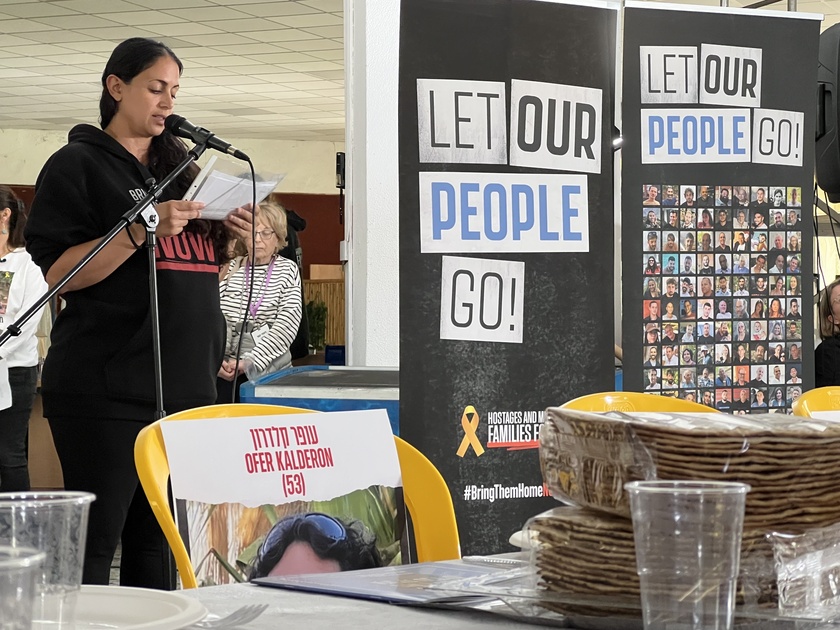I came here to cover the war and water issues, but I also came here to answer my own questions about whether Israel will survive. Even after so many visits, when you read about the threats Israel is facing, and the pressure it is under… you wonder.
I attended a gathering of survivors of the October 7 attacks; dropped in on a group of visiting legislators who are facing tough opposition to Israel from their young constituents; returned to the communities of Kibbutz Be’eri and Kibbutz Nir Oz; covered a Passover seder in honor of the remaining hostages in Gaza; met mourners at the Supernova memorial site; took in the broad vista at Kibbutz Har’el; and found joy again at an Idan Raichel Project concert.
I think the answer to my questions is that Israel’s survival remains a miracle, one that spreads love and light to the world, to those who wish to see.
This week’s portion launches the great story of Abraham, who is told to leave everything of his life behind — except his immediate family — and to leave for “the Land that I shall show you.”
There’s something interesting in the fact that Abraham is told to leave his father’s house, as if breaking away from his father’s life — but his father, in fact, began the journey, moving from Ur to Haran (in last week’s portion). His father set a positive example — why should Abraham leave him?
Some obvious answers suggest themselves — adulthood, needing to make one’s own choices, his father not going far enough, etc.
But I think there is another answer. Abraham (known for the moment as Abram) needs to establish his own household. This is not just about making one’s own choice, but really about choosing one’s own starting point. It’s starting over.
Sometimes we start over in fundamental ways even if much that surrounds us remains the same. Sometimes the journey we have to ...
The story of Noah is familiar; the details, less so.
Noah is often seen as an ambivalent figure. He was righteous -- but only for his generation. What was his deficiency?
One answer suggests itself: knowing that the world was about to be flooded, he built an Ark for the animals and for his own family -- but did not try to save anyone else or to convince them to repent and change their ways (the prophet Jonah, later, would share that reluctance).
Abraham, later, would set himself apart by arguing with God -- with the Lord Himself! -- against the destruction of Sodom and Gomorrah, saying that they should be saved if there were enough righteous people to be found (there were not).
Still, Noah was good enough -- and sometimes, that really is sufficient to save the world. We don't need heroes every time -- just ordinary decency.
Hi all -- as I noted last month, I'm going to be closing down my Locals page, at least for tips and subscriptions -- I may keep the page up and the posts as well, but I'm no longer going to be accepting any kind of payment.
Look for cancelation in the very near future. Thank you for your support!
















